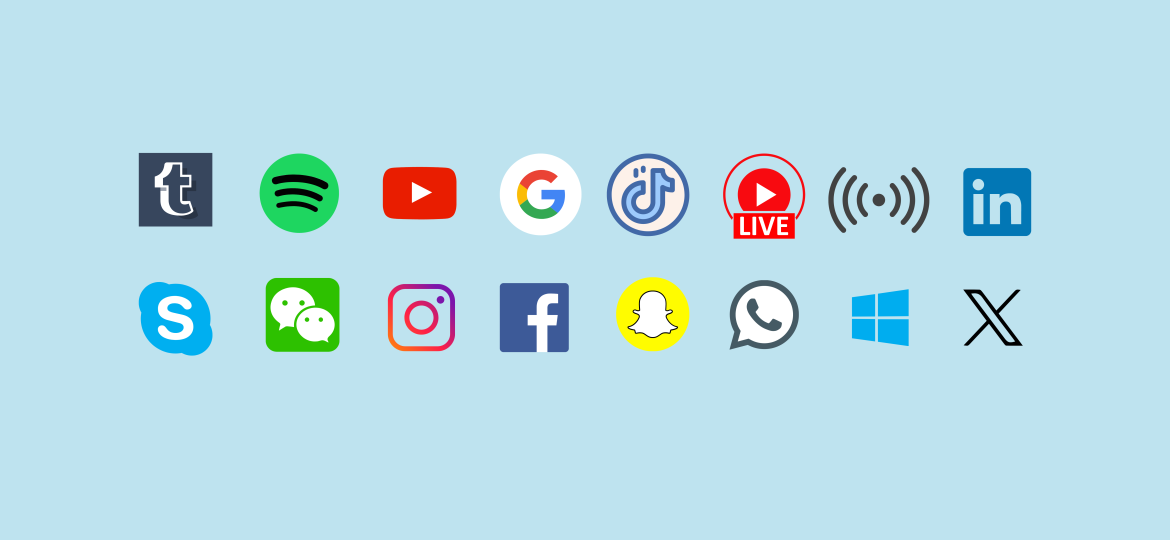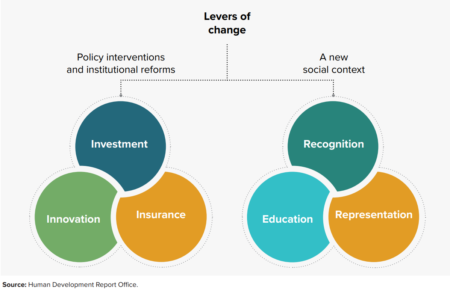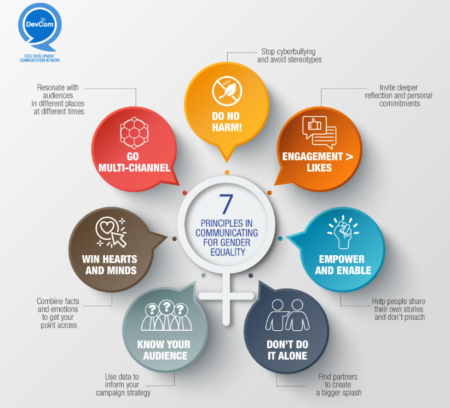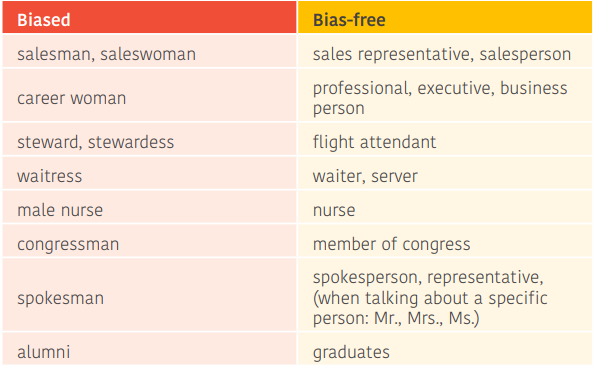
Introduction
In the Caribbean gender equality has been a major area of focus both at the national and regional levels. Efforts have focused on the advancement of women’s human rights, which has seen notable gains in areas such as equal access to education, access to the labour market and legal protections for women against gender-based violence. Throughout the region, efforts are ongoing toward the achievement of substantive equality for women and girls within the framework of a rights-based culture. However, embedded patriarchal notions of sex and gender roles perpetuated through social and cultural norms continue to impede progress. These biases are reflected in barriers to women’s access to their human rights and freedoms, including their right to full and equal political participation as well as women’s unequal access to employment and remuneration for work and disproportionate burden of care responsibilities within the home – issues which became more visible in the recent past during the COVID-19 pandemic. In our current context the role of media in challenging and dismantling the norms and practices that reinforce harmful stereotypes and norms is especially essential.
Background
According to social cognitive theory, people are encultured agents’ whose beliefs and attitudes are shaped by cognitive processes in conjunction with social and material realities. As a result, factors such as how children are socialized into gender norms, their expected behaviours, observed practices at home, school and religious organizations, and content that they interact with on media platforms, all play a role in shaping their understanding of gender as they grow into adults. These perceptions of gender can be positive and reaffirming, while other perceptions are biased and negatively affect attitudes and behaviours against women and girls.
One tool that has been used to quantify biases against women by capturing people’s attitudes on women’s roles is the Gender Social Norms Index (GSNI). The GSNI 2023 reveals that on average 9 out of 10 men and women hold biases against women. More specifically, almost half the world’s population think that men make better political leaders than women do, and 43 percent think that men make better business executives than women do. These beliefs have tangible effects on women’s economic and political representation.
In the political sphere, women’s representation globally remains below the minimum recommended threshold of 30 percent as recommended in the 1995 UN Beijing Platform for Action. The Inter-Parliamentary Union (IPU) data (as at October 2023) for global averages of women in national parliaments shows that only 26.7%of parliamentarians in single or lower houses are women, up from 11%in 1995. As far as regional averages go, the Caribbean is ahead with 40.7%, but at a country level, the percentage of women elected as Members of Parliament in most cases remain low: 28.57% in Trinidad and Tobago, 26.67% in Barbados, 15.63% in Belize, 17.95% in Bahamas, and 31.25% in Saint Kitts and Nevis.
Similarly, data from The World’s Women 2020: Trends and Statistics report, globally, women hold only 28 percent of managerial positions (UN DESA 2020). Regardless of women’s educational background, women still experienced high underemployment and unemployment rates. Unpaid domestic and care work has also disproportionately affected women – on average between 22 and 42 hours per week on unpaid domestic work and caregiving tasks (CEPAL 2021). Data also reveals that gender pay equity continues to be a challenge. UN Women notes that [w]orldwide, women only make 77 cents for every dollar earned by men. As a result, there’s a lifetime of income inequality between men and women.
Biased stereotypes of women also impact the safety of all women and girls. The GSNI 2023 reveals that more than a quarter of the world’s population believe that it is justifiable for a man to beat his wife. Additionally, 26 percent of women over age 15 have experienced intimate partner violence globally. Within the Caribbean, prevalence data reveals that across five Caribbean countries, on average 46 percent of women have experienced at least one form of violence in her lifetime. Women of marginalised groups, such as migrant women and women with disabilities are also at a greater risk of experiencing all the injustices described above.
As the social cognitive theory explains, people are active agents who can both be influenced by and influence their environment. Thus, as equally as biased gender norms have shaped attitudes, relationships and power dynamics, so too can people be agents of change to re-shape gender attitudes and behaviours.
The Media’s Role in Promoting Gender Equality
As women’s organisations, gender machineries, advocates, allies, content creators and members of the media, we all play a critical role in crafting what stories are told and how they are told to ensure that women and girls are accurately represented in the media.
In 2022, UNICEF and Geena Davis Institute on Gender in Media conducted research on the role of advertising in crafting perceptions in the Caribbean. The data revealed, “Harmful gendered norms and stereotypes are present in advertising in the Caribbean. However, inequities were often subtle. Women and men appeared in advertisements at similar rates overall — but the ways in which they were portrayed were often distinct and illustrative of discriminatory gender norms and a patriarchal system that privileges masculinity over femininity.” This was specifically displayed in women being portrayed as caregivers and objects of sexual desire, while men were portrayed as powerful providers and leaders. Although this study largely analysed television advertisements, it is evident that gender-biased advertising extends on other platforms such as social media posts.
To rewrite much of the wrong that has been created via the media, groups around the world have rallied to utilise media to promote new messages, focused on changing attitudes and behaviours. Some of these campaigns include #MeToo #TimesUp #NiUnaMenos #SpotlightWithHer and #BlackLivesMatter. According to the UNDP 2023, such campaigns are significant in enacting changes through two main pathways: policy reforms and reframing gender roles and power relations. Essentially, these are levers of change, meaning areas of work that have the potential to deliver wide-ranging positive change beyond its immediate focus.
The graphic below displays levers of change.
The media, in its pervasiveness, can act as any lever of change, but more directly shapes a new social context through education, recognition and representation. This is especially produced through the advertising, television shows, and trends on social media.
Social Media Tools for Action
Experts in communications, campaigning and gender norms, at the Development Matters, an initiative of the Organisation for Economic Co-operation and Development (OECD), developed the 7 Principles for Communicating for Gender Equality. These principles serve as best practices for promoting gender equality and the prioritization of the rights of women and girls via media content. Below is a graphical representation of the 7 Principles.
To learn more, visit Development Matters and the SDG Communicator.
Language Matters
When it comes to gender equality, what is said, how it is said and when it is said, all significantly matter.
The UNDP created a Gender Responsive Communication Guide detailing words and phrases that perpetuate gender stereotypes. It further presents bias-free language to ensure gender sensitive communication when interacting with audiences. Below is an excerpt from the guidelines.
Additional Resources
To further explore ways in which media content can be used to positively shape gender perceptions and re-share gender norms, we have compiled a list of resources with practical tools and guidelines. View the following links on best communication practices for gender equality.
- Guidelines for gender and conflict-sensitive reporting (UN Women)
- Guide: Gender-Inclusive Communication (United Nations Office on Drug and Crime)
- Gender and Communications Toolkit (International Organization for Migration)
- Guidelines for gender-inclusive language (United Nations)
- A review of advertising in the Caribbean and its links to gender equality, gender norms and violence against women and girls (UNICEF and Geena Davis Institute on Gender in Media)
- Gender Social Norms Index 2023 (UNDP)




